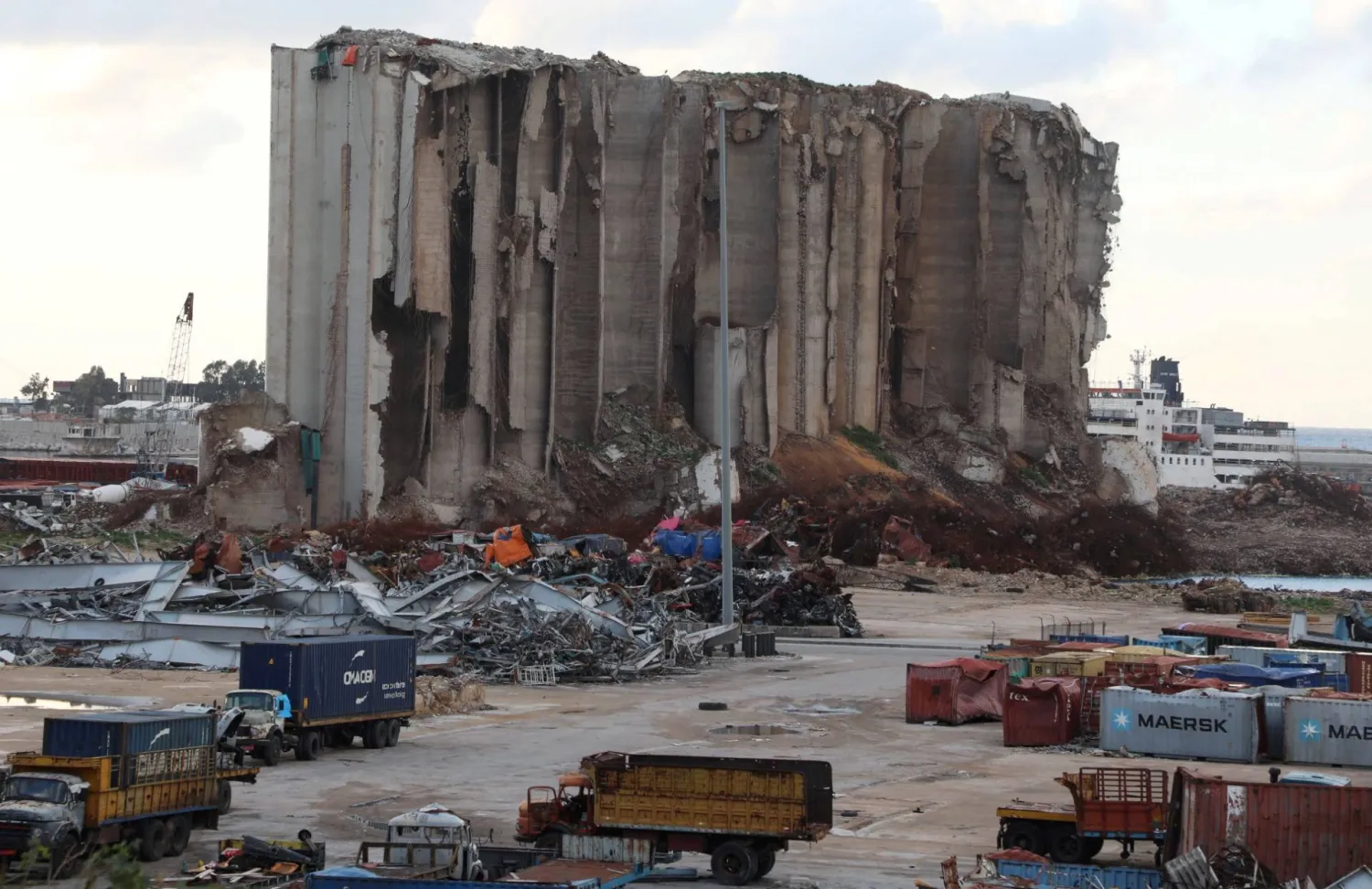Lebanon’s Minister of Economy, Amin Salam, sent a letter to the Emir of Kuwait, Nawaf Al-Ahmad Al Sabah, urging him to rebuild the wheat silos that were destroyed by the Beirut port explosion three years ago.
“We are counting on Kuwait’s support to complete the initiative launched by the late Emir Sheikh Sabah Al-Ahmad Al Sabah, to rebuild the silos,” Russia’s Sputnik quoted Salam as saying.
He added that he conveyed this call for the sake of the people of Lebanon and not the government, “because bread is for the people, and it is not permissible for an Arab country to be left without a strategic stockpile.”
“There is no doubt that we always face a significant challenge in terms of food security since we lost the grain silos at the Port of Beirut. We lost the strategic stockpile, which usually ensures sustainability for three to six months,” Salam told the Russian agency.
He added: “Unfortunately, Lebanon did not have a long-term vision, and the stockpile was located in one place, sufficient for three months. In its absence, we now rely on wheat imports; so when it is received, we can eventually have flour available through its milling in Lebanon and its distribution to bakeries.”
Salam noted that the country uses 30,000 to 35,000 tons of wheat per month to produce 20,000 to 25,000 tons of flour.
He continued: “In the event of a major shortage in Lebanon, we can cover our need from Egypt’s large stock. But this solution will not take us out of the danger circle, in terms of delays in the delivery of wheat, which leads to rise in prices.”
The economy minister revealed that Lebanon has drawn up a plan to distribute strategic food stocks in several geographical locations, by rebuilding silos in the port of Beirut on an area of 22,000 sqm, as well as new silos in the port of Tripoli on a surface of 35,000 sqm.









